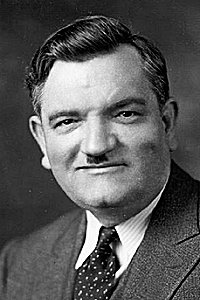Introduction
Born: September 18, 1892, Upshur County, Texas.
Died: August 19, 1940, Baylor Hospital, Dallas, Texas.
Buried: Laurel Land Memorial Park, Dallas, Texas.

Born: September 18, 1892, Upshur County, Texas.
Died: August 19, 1940, Baylor Hospital, Dallas, Texas.
Buried: Laurel Land Memorial Park, Dallas, Texas.

Virgil was the son of William Oscar Stamps and Florence Corine Rosser, and brother of Frank Stamps. His father was a lumberman and sometime state legislator. Virgil married twice, to Addie Belle Culpepper (1909) and Trueman Bussey.
As a young teenager, he attended the Upshur County Singing Convention and fell in love with quartet singing. In 1907, he attended a singing school run by R. M. Morgan. From 1911–14, he taught singing schools while continuing to work at the family store in Ore City, Texas.
In 1914, he composed his first song—Man Behind the Plow—and sold it for ten cents a copy. Encouraged by his success, he went to work for a music company that year, and continued his musical studies.
In 1917, Stamps moved to Atlanta, Georgia, to work for another music company, and in 1918, to Lawrenceburg, Tennessee.
He returned to Texas in 1919, settling in Timpson, then in Jacksonville, where he opened a branch office for his employer. In 1924, he founded the V. O. Stamps Music Company, and published his first volume, Harbor Bells.
In 1926, Jesse Baxter became associated with the Stamps concern. In 1927, the company changed its name to the Stamps-Baxter Music Company. Within two years, the firm moved its headquarters to Dallas, Texas, and opened an office in Chattanooga, Tennessee.
For the first few years, Stamps-Baxter had its books printed in Dalton, Georgia, but in 1934 decided to begin printing them itself. By 1936, the company moved to larger quarters, and was known as the Stamps-Baxter Music and Printing Company. At the time, it was said to be largest printing concern in the world devoted to Gospel music.
Stamps was also known as the founder of the Stamps Quartet, a Gospel singing group, which in 1936 began broadcasting in Dallas, Texas, on radio station KRLD. In 1938 and 1939, the quartet ran all-night singing conventions in locations such as the Cotton Bowl of the State Fair Park, and the Dallas Sportatorium. The 1939 event ran from 8:00 p.m. to 7:00 a.m., and was broadcast for nearly eight straight hours.
At the time of his death, Stamps was supervising over a dozen quartets singing on various radio stations, was editing the monthly Gospel Music News, and was president of the Texas State Singers Association.
He eventually became a member of the Texas Music Hall of Fame, and—in at least the secular world—is perhaps best remembered for his arrangement of the music to When the Saints Go Marching In, in the Starlit Crown (Dallas, Texas: Stamps-Baxter Music, 1937), number l8.